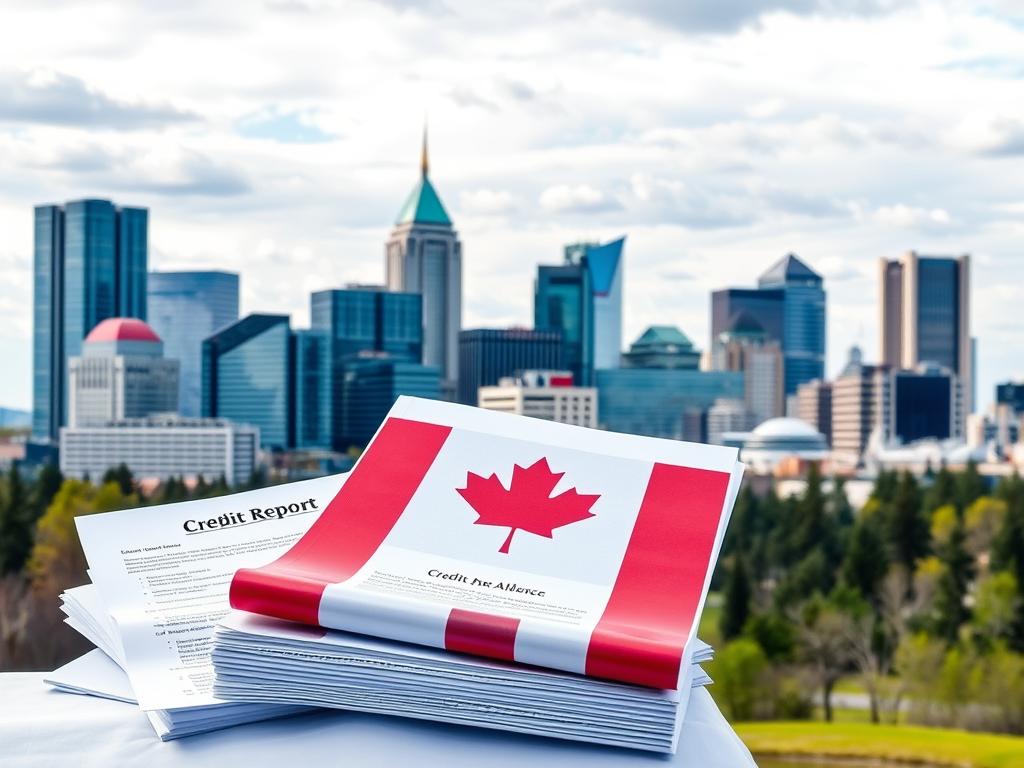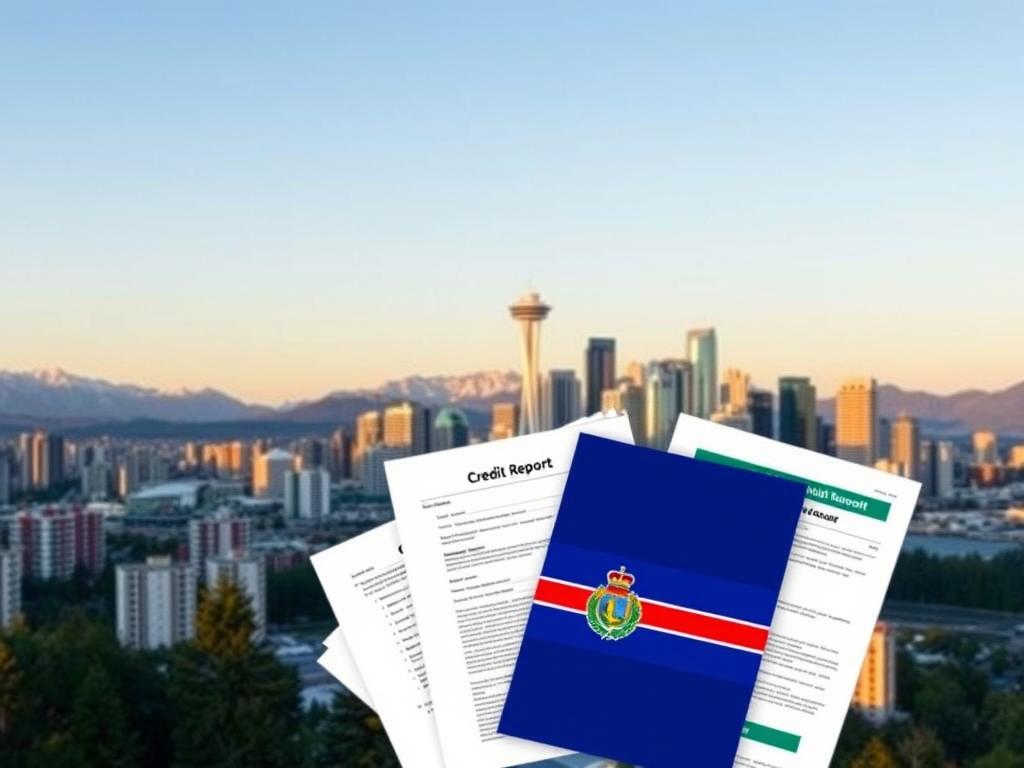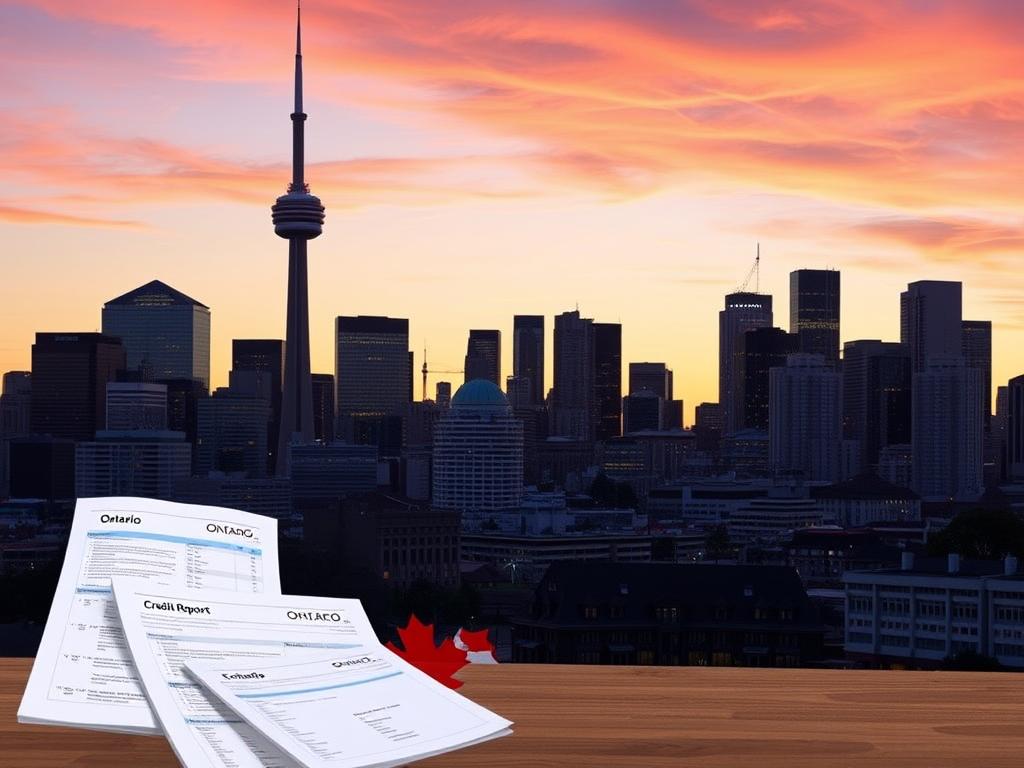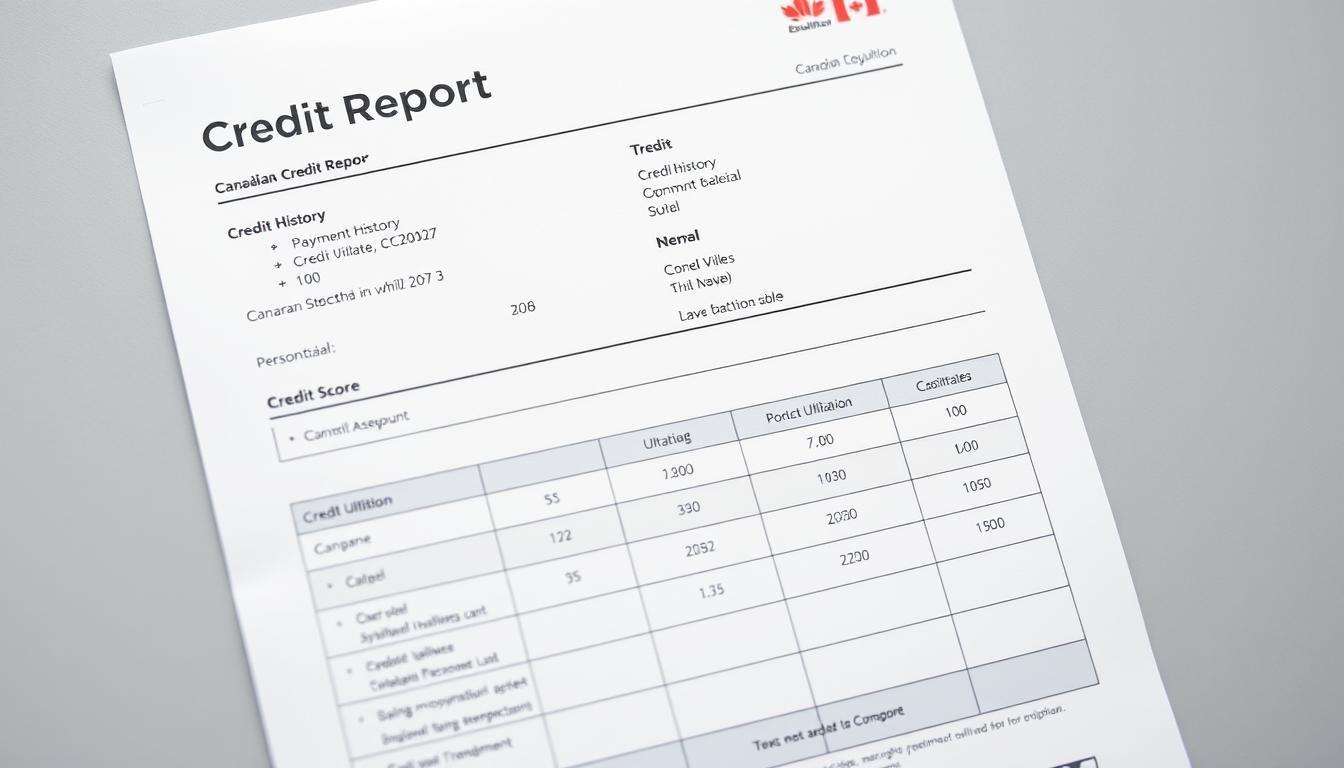Understanding your credit report is essential for financial health in Canada. Whether you’re applying for a mortgage in British Columbia, seeking a car loan in Ontario, or establishing credit in the Yukon, your credit report plays a crucial role. This comprehensive guide will walk you through accessing and improving your credit report in all 13 Canadian provinces and territories, with specific resources for each region.
Need Your Credit Report Now?
Don’t wait to take control of your financial future. Get your comprehensive credit report today and start your journey toward better credit.
Understanding Credit Reports in Canada
A typical Canadian credit report contains your personal information, credit accounts, payment history, and credit score
Your credit report is a detailed summary of your credit history in Canada. It contains information about your credit cards, loans, payment history, and public records related to your finances. Credit reporting agencies (primarily Equifax and TransUnion) collect this information from lenders and other sources to create your credit profile.
What’s Included in Your Credit Report
- Personal information (name, address, SIN)
- Credit accounts (credit cards, loans, mortgages)
- Payment history for each account
- Public records (bankruptcies, judgments)
- Credit inquiries from lenders
- Current debt amounts and credit limits
- Account status information
- Collection accounts
- Credit score (usually between 300-900)
- Consumer statements you’ve added
Why Your Credit Report Matters
Your credit report affects nearly every aspect of your financial life in Canada. Lenders, landlords, employers, and insurance companies may check your credit report to make decisions about you. A good credit report can help you secure better interest rates, rental approvals, and even employment opportunities.
In Canada, you’re entitled to request a free copy of your credit report from both Equifax and TransUnion once every 12 months. Taking advantage of this right is an essential step in managing your financial health.
Credit Repair Basics for Canadians

Improving your credit score takes time and consistent effort. While there’s no instant fix for credit problems, understanding the factors that affect your credit score can help you develop an effective repair strategy.
Key Factors Affecting Your Credit Score
Effective Credit Repair Strategies
Do These
- Pay all bills on time, every time
- Keep credit card balances below 30% of limits
- Check your credit report regularly for errors
- Dispute inaccurate information promptly
- Keep old accounts open to maintain history
- Diversify your credit mix responsibly
Avoid These
- Missing payments or paying late
- Maxing out credit cards
- Applying for multiple new credit accounts quickly
- Closing old credit accounts
- Ignoring collection accounts
- Paying for “quick fix” credit repair services
Ready to Start Your Credit Repair Journey?
The first step to fixing your credit is knowing exactly where you stand. Get your comprehensive credit report today.
Credit Reporting Across Canadian Provinces and Territories
While credit reporting follows federal guidelines across Canada, there are some provincial variations in consumer protection laws, statute of limitations on debt, and available resources. Understanding these differences can help you navigate credit repair in your specific region.
Provincial Credit Bureau Coverage
| Province/Territory | Equifax Coverage | TransUnion Coverage | In-Person Office |
| Alberta | Full | Full | Calgary |
| British Columbia | Full | Full | Vancouver |
| Manitoba | Full | Full | No |
| New Brunswick | Full | Full | No |
| Newfoundland and Labrador | Full | Full | No |
| Nova Scotia | Full | Full | Halifax |
| Ontario | Full | Full | Toronto |
| Prince Edward Island | Full | Full | Charlottetown |
| Quebec | Full | Full | Montreal |
| Saskatchewan | Full | Full | No |
| Northwest Territories | Limited | Limited | No |
| Nunavut | Limited | Limited | No |
| Yukon | Limited | Limited | No |
Statute of Limitations on Debt by Province
| Province/Territory | Limitation Period | Special Considerations |
| Alberta | 2 years | Acknowledgment of debt restarts the clock |
| British Columbia | 2 years | Changed from 6 years in 2013 |
| Manitoba | 6 years | Partial payment restarts the clock |
| New Brunswick | 6 years | Written acknowledgment restarts the clock |
| Newfoundland and Labrador | 6 years | Partial payment restarts the clock |
| Nova Scotia | 6 years | Written acknowledgment restarts the clock |
| Ontario | 2 years | Changed from 6 years in 2004 |
| Prince Edward Island | 6 years | Written acknowledgment restarts the clock |
| Quebec | 3 years | Different rules under Civil Code |
| Saskatchewan | 2 years | Acknowledgment restarts the clock |
| Northwest Territories | 6 years | Partial payment restarts the clock |
| Nunavut | 6 years | Follows NWT legislation |
| Yukon | 6 years | Written acknowledgment restarts the clock |
Important: Understanding your province’s statute of limitations can be crucial when dealing with old debts. Once the limitation period expires, creditors generally cannot successfully sue you to collect the debt, though it may still appear on your credit report.
Provincial and Territorial Credit Report Guides
Alberta Credit Report Guide

Provincial Resources
- Alberta Consumer Protection Act provides additional credit reporting protections
- Service Alberta offers consumer advice on credit issues
- Money Mentors provides free credit counseling services
Getting Your Credit Report in Alberta
Alberta residents can access their free credit report through both Equifax and TransUnion. Equifax maintains an in-person office in Calgary where you can obtain your report immediately with proper identification. For TransUnion, Alberta residents can request reports online, by mail, or by phone.
The Alberta Consumer Protection Act provides additional safeguards regarding how your credit information can be used and shared within the province.
British Columbia Credit Report Guide

Provincial Resources
- Business Practices and Consumer Protection Authority oversees credit reporting
- Credit Counselling Society offers free counseling services
- Consumer Protection BC provides education on credit rights
Getting Your Credit Report in BC
British Columbia residents benefit from the Business Practices and Consumer Protection Act, which regulates credit reporting agencies. You can request your free credit report from both Equifax and TransUnion. Vancouver hosts in-person offices for both bureaus where you can obtain your report with proper identification.
BC’s Consumer Protection laws provide strong oversight of credit reporting practices, giving residents additional recourse for disputes.
Ontario Credit Report Guide

Provincial Resources
- Consumer Protection Ontario provides guidance on credit issues
- Credit Canada offers debt and credit counseling services
- Financial Services Regulatory Authority of Ontario oversees financial institutions
Getting Your Credit Report in Ontario
Ontario residents are protected by the Consumer Reporting Act, which regulates credit reporting agencies. You can obtain your free credit report from both Equifax and TransUnion. Equifax maintains an in-person office in Toronto where you can get your report immediately with proper identification.
Ontario’s 2-year statute of limitations on debt is among the shortest in Canada, which can be beneficial when dealing with older debts.
Note: We’ve highlighted three major provinces above. For detailed guides on all 13 provinces and territories, including Quebec, Manitoba, Saskatchewan, New Brunswick, Nova Scotia, Prince Edward Island, Newfoundland and Labrador, Northwest Territories, Nunavut, and Yukon, use our comprehensive credit report service.
How to Request Your Credit Report in Canada
Canadians can request their credit reports through multiple channels. Each method has its advantages and considerations. Here’s how to get your credit report through each available option:
Online Request
Fastest Method
- Create accounts with Equifax and TransUnion
- Verify your identity through secure questions
- Access your report immediately
- Available 24/7 for convenience
The online method provides instant access but may require additional identity verification steps.
Phone Request
Convenient Method
- Call Equifax: 1-800-465-7166
- Call TransUnion: 1-800-663-9980
- Verify identity through automated system
- Report mailed within 5-10 business days
Phone requests are straightforward but require providing personal information verbally.
Mail Request
Most Private Method
- Download and complete request forms
- Include photocopies of two pieces of ID
- Mail to the bureau’s address
- Receive report within 5-15 business days
Mail requests offer privacy but take the longest time to process.
In-Person Credit Report Requests
Both Equifax and TransUnion maintain offices in select Canadian cities where you can request your credit report in person. This method allows you to receive your report immediately and ask questions directly.
| Bureau | Office Locations | Required ID | Processing Time |
| Equifax | Toronto, Montreal, Halifax, Charlottetown | Two pieces (one photo ID + proof of address) | Immediate |
| TransUnion | Burlington, Halifax | Two pieces (one photo ID + proof of address) | Immediate |
Skip the Hassle of Multiple Requests
Get your comprehensive credit report quickly and easily through our trusted partner. No waiting, no complicated forms.
How to Dispute Errors on Your Credit Report
Finding errors on your credit report is common. These mistakes can significantly impact your credit score and financial opportunities. Here’s how to effectively dispute errors on your Canadian credit report:
Examine all sections of your credit report for inaccuracies, including personal information, account details, payment history, and inquiries.
Collect evidence that supports your dispute, such as account statements, payment confirmations, or correspondence with creditors.
File your dispute with the appropriate credit bureau (Equifax and/or TransUnion) through their online portal, by mail, or by phone.
Notify the company that provided the incorrect information (like a bank or creditor) about your dispute.
Credit bureaus typically have 30 days to investigate your dispute and respond with their findings.
Once the investigation is complete, the bureau will provide you with the results and an updated credit report if changes were made.
If you’re not satisfied with the results, you can add a consumer statement to your credit report or escalate to provincial consumer protection agencies.
Disputing errors promptly is crucial. Under Canadian law, credit bureaus must investigate disputes within 30 days, but the process of correcting your report can take longer if multiple issues need to be addressed.
Important: Keep copies of all correspondence and follow up regularly on your disputes. Credit bureaus handle thousands of disputes daily, and persistence is often necessary to ensure your issues are properly addressed.
Frequently Asked Questions About Canadian Credit Reports
How often should I check my credit report in Canada?
Financial experts recommend checking your credit report at least once a year from both Equifax and TransUnion. Consider checking them six months apart (one bureau at a time) to effectively monitor your credit twice yearly. If you’re actively working on credit repair or suspect identity theft, check more frequently.
Will checking my own credit report hurt my credit score?
No. When you check your own credit report, it’s considered a “soft inquiry” and doesn’t affect your credit score. Only “hard inquiries” initiated by lenders when you apply for credit can potentially lower your score.
How long do items stay on my Canadian credit report?
Most negative information stays on your Canadian credit report for 6-7 years, depending on the province and type of information. Bankruptcies can remain for 6-7 years from the discharge date (14 years for multiple bankruptcies in some provinces). Positive information can stay indefinitely while accounts remain open.
Are credit reports different across Canadian provinces?
The basic credit reporting system is consistent across Canada, but provincial consumer protection laws can affect how information is reported and how long it remains on your report. Quebec, for example, has some unique provisions under its Civil Code that affect credit reporting.
Can I get my credit score for free in Canada?
While you’re entitled to free credit reports, credit scores typically aren’t included for free. However, many financial institutions now offer free credit score access to their customers. Several online services also provide free credit scores, though they may require registration.

Taking Control of Your Credit Across Canada
Understanding and managing your credit report is a crucial aspect of financial health for Canadians in every province and territory. By regularly checking your credit report, disputing errors promptly, and implementing sound credit management practices, you can improve your credit profile over time.
Remember that credit repair is a marathon, not a sprint. Consistency in good financial habits will yield the best results over time. Whether you’re in Vancouver or Halifax, Toronto or Yellowknife, the fundamental principles of credit management remain the same, even as some of the specific regulations vary by province.
Start your credit improvement journey today by obtaining your credit report and creating a personalized plan to address any issues you find. Your future financial opportunities depend on the actions you take now.
Ready to Take the First Step?
Get your comprehensive credit report today and begin your journey toward better credit and greater financial opportunities.

